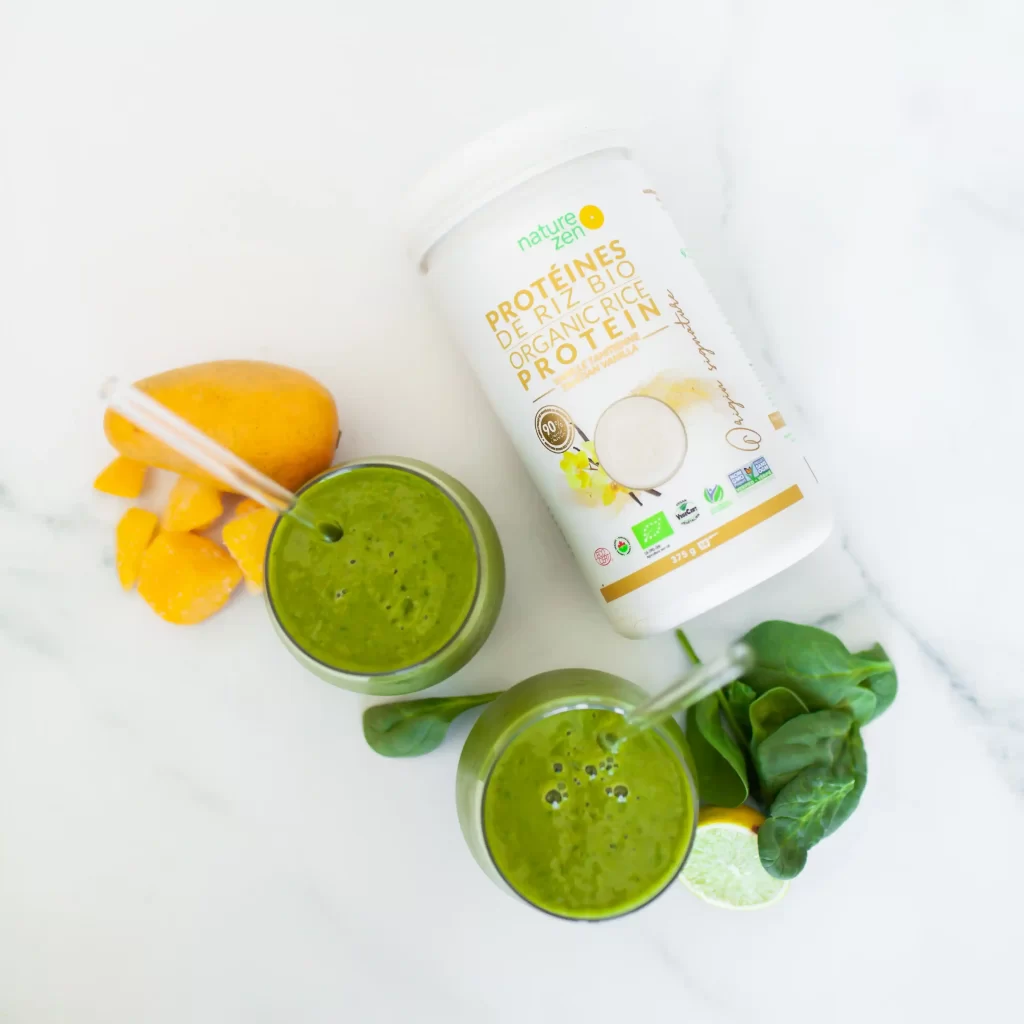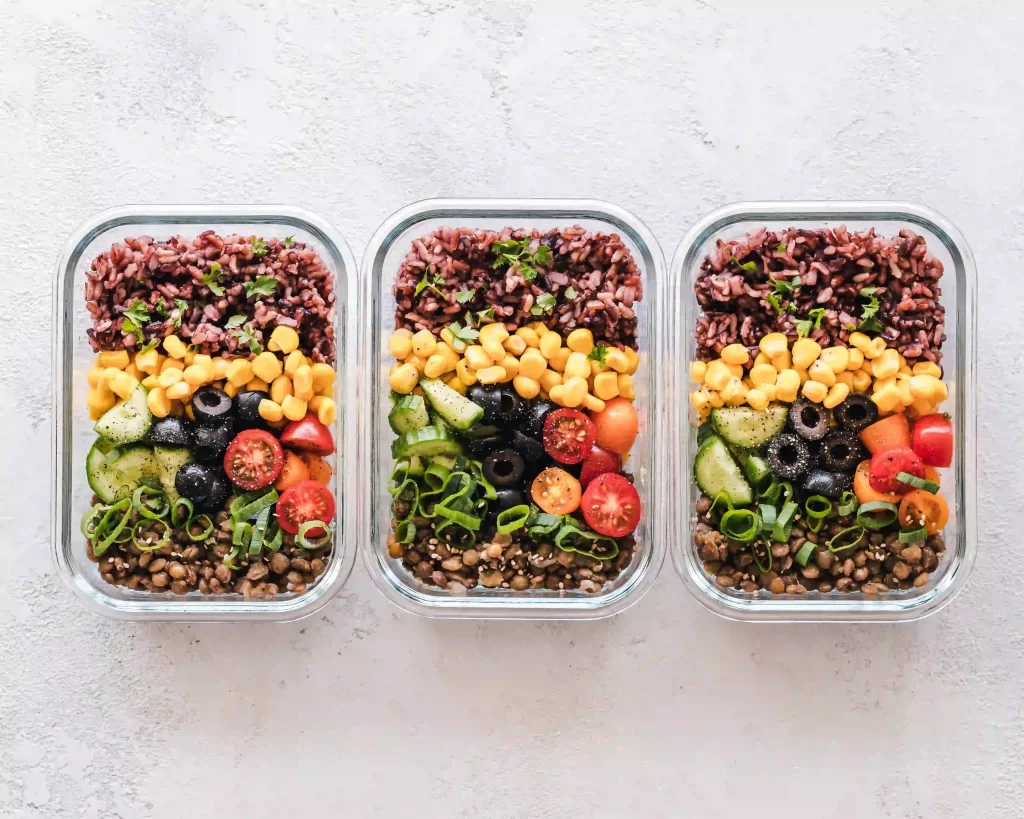Last Updated on July 25, 2023 by Shane Corbitt
Introduction to Plant-Based Nutrition
Welcome to the fascinating world of plant-based nutrition! In a society where fast food joints and processed snacks dominate, it’s refreshing to explore the abundance of health and vitality that can be found in plant-based foods. But what exactly does “plant-based” mean?
Simply put, a plant-based diet emphasizes whole, unprocessed foods sourced from plants such as fruits, vegetables, legumes, whole grains, nuts, and seeds. It’s a dietary approach that relies primarily on plant-derived ingredients while minimizing or excluding animal products.
Definition of a plant-based diet
A plant-based diet is not about strict rules or rigid restrictions; rather, it’s about nourishing your body with a diverse range of nutrient-packed plants. Some people might confuse it with being vegan or vegetarian; however, while both veganism and vegetarianism fall under the umbrella of plant-based eating, they have their own unique characteristics. Vegans exclude all animal products from their diet (including dairy and eggs), whereas vegetarians typically avoid meat but may consume animal by-products.
Brief history and rise in popularity
The concept of consuming predominantly plant-derived foods is far from new. Historically, civilizations like ancient Egypt and India thrived on diets centered around plants due to cultural beliefs or resource availability. However, the modern surge in interest towards plant-based nutrition can be attributed to various factors: growing awareness about the ethical treatment of animals in factory farming practices, concerns over environmental sustainability; and an increasing body of scientific research highlighting the potential health benefits associated with plant-rich diets.
Benefits of adopting a plant-based lifestyle
Adopting a plant-based lifestyle offers an array of potential benefits for your overall well-being. Firstly, studies have shown that individuals who follow predominantly plant-powered diets tend to have lower risks of chronic diseases such as heart disease, type 2 diabetes, and certain types of cancer. This can be attributed to the fiber-rich nature of plant-based foods, the absence or reduced intake of harmful saturated fats found in animal products, and the abundance of antioxidants and phytochemicals present in fruits and vegetables.
Furthermore, embracing a plant-based lifestyle can also contribute to weight management due to the naturally lower calorie density of many plant foods. Plant-based diets are often more nutrient-dense than their meat-centric counterparts, meaning you can consume a higher volume of food for fewer calories.
This helps with satiety while providing your body with essential vitamins and minerals. Last but certainly not least, by choosing plant-based alternatives over animal products, you’re making a positive impact on our planet.

Understanding Macronutrients in Plant-Based Foods
Carbohydrates: the fuel for your body
Carbohydrates often get a bad rap, but they are actually a crucial source of energy for our bodies. When it comes to plant-based nutrition, carbohydrates take center stage as they provide the necessary fuel to keep us going throughout the day. However, not all carbohydrates are created equal.
There are two main types: complex and simple carbohydrates. Complex carbohydrates are found in whole grains like brown rice, quinoa, and whole wheat bread.
They consist of long chains of sugar molecules that take longer to break down in our bodies, providing a slow and steady release of energy. On the other hand, simple carbohydrates are made up of one or two sugar molecules and can be quickly digested, leading to a rapid spike in blood sugar levels.
High-carb plant-based sources (e.g., whole grains, legumes)
Whole grains such as oats, barley, and bulgur are excellent high-carb options for those following a plant-based diet. These grains offer not only a good dose of complex carbohydrates but also valuable fiber that aids digestion and helps regulate blood sugar levels. Legumes such as lentils, chickpeas, and black beans also deserve special mention when discussing high-carb plant-based sources.
Apart from being rich in complex carbs, legumes pack an impressive punch of protein and fiber. They make for versatile ingredients that can be used in soups, stews, salads, or even transformed into delicious veggie burgers.
Proteins: building blocks for muscle growth and repair
Proteins play an essential role in muscle growth and repair within our bodies. While animal products have traditionally been considered the go-to source for complete proteins that contain all nine essential amino acids we need to thrive, plants also offer a plethora of protein-rich options.
Complete vs. incomplete proteins in plants. Complete proteins contain all the essential amino acids needed by our bodies. While most plant-based foods don’t naturally provide complete proteins on their own, they can be easily obtained by combining different plant sources. For example, pairing legumes with grains or nuts with seeds creates a complete amino acid profile.


Protein-rich plant-based options (e.g., tofu, tempeh, quinoa)
Tofu and tempeh are two popular protein powerhouses among those following a plant-based diet. These soy-based products are incredibly versatile and can be incorporated into various dishes to provide a substantial amount of protein.
Quinoa is another fantastic option that not only contains ample amounts of protein but also offers essential amino acids, making it a complete protein source on its own. This ancient grain is gluten-free and easy to prepare, making it an appealing choice for many individuals looking to increase their protein intake.
Fats: essential for overall health and vitality
Fats often get a bad reputation, but the truth is that they play an essential role in our overall health and vitality. When it comes to plant-based fats, there are various types to keep in mind.
Different types of fats found in plants (e.g., monounsaturated, polyunsaturated)
Monounsaturated fats are found in foods like avocados, olives, and nuts like almonds and cashews. These healthy fats have been linked to reduced inflammation and improved heart health when consumed as part of a balanced diet.
Polyunsaturated fats include omega-3 and omega-6 fatty acids that our bodies cannot produce on their own but need for proper functioning. Rich sources of these fats include flaxseeds, chia seeds, walnuts, hemp seeds, and fatty fish alternatives like algae-based supplements.
Healthy plant-based fat sources (e.g., avocados, nuts, seeds)
Avocados are a true godsend when it comes to healthy plant-based fats. They are packed with monounsaturated fats, fiber, and various essential vitamins and minerals. Whether spread on toast or incorporated into salads and smoothies, avocados add a creamy richness that can’t be beaten.
In addition to avocados, nuts and seeds are also excellent sources of healthy fats. Almonds, walnuts, cashews, chia seeds, flaxseeds – the list goes on!
These little powerhouses not only provide a satisfying crunch but also offer an abundance of nutrients that contribute to overall well-being. Understanding the different macronutrients found in plant-based foods is key to ensuring a well-balanced diet.
Incorporating healthy fats from sources like avocados and nuts is crucial for optimal health. By focusing on these macronutrients in your plant-based nutrition journey, you’ll be well on your way to reaping the benefits of this lifestyle choice.


Micronutrients: The Powerhouses of Plant-Based Foods
Vitamins:
Vitamin C: Boosting Immunity Naturally with Fruits and Vegetables
When it comes to bolstering our immune system, few nutrients are as important as vitamin C. Luckily, plant-based eaters have a wide array of fruits and vegetables at their disposal to ensure they meet their daily vitamin C needs. Citrus fruits like oranges, lemons, and grapefruits are well-known for their high vitamin C content. However, there are plenty of other plant-based sources that pack a nutritional punch.
Consider adding bell peppers, strawberries, kiwis, papayas, and leafy greens like spinach and kale to your diet for an extra boost of this immune-boosting vitamin. Vitamin C not only helps strengthen our immune system but also acts as a powerful antioxidant in the body.
It plays a crucial role in collagen production, which is essential for healthy skin, wound healing, and even maintaining the health of our blood vessels. So next time you’re perusing the fresh produce section at your local market or grocery store, grab some vibrant fruits and veggies rich in vitamin C to support your overall well-being.
Vitamin D: Obtaining Adequate Levels through Sunlight Exposure or Fortified Foods
Vitamin D is often referred to as the “sunshine vitamin” because our bodies can naturally produce it when we expose our skin to sunlight. This essential nutrient plays a key role in calcium absorption and bone health while also supporting our immune system function.
For plant-based individuals who may have limited access to natural sunlight or live in regions with less sunshine throughout the year, there are alternative ways to ensure adequate vitamin D intake. One option is to incorporate fortified foods into your diet.
Many brands offer plant-based milk alternatives fortified with vitamin D, such as soy milk or almond milk. Fortified cereals and plant-based spreads like margarine can also be good sources.
Additionally, consider discussing vitamin D supplementation with your healthcare provider to ensure you meet the recommended daily intake. Remember, it’s always important to strike a balance between sunlight exposure and protecting your skin from harmful UV rays.
Minerals:
Iron: Debunking Myths about Iron Deficiency in Plant-Based Diets
It is a common misconception that individuals following a plant-based diet may struggle to meet their iron needs. While it’s true that plant-based sources of iron are non-heme iron (as opposed to heme iron found in animal products), this should not be a cause for concern. In fact, there are plenty of plant-based foods that can provide adequate amounts of iron when consumed as part of a balanced diet.
Legumes such as lentils, chickpeas, and beans are excellent sources of iron, along with leafy greens like spinach and kale. Nuts and seeds like pumpkin seeds, sesame seeds, and cashews also contain significant amounts of iron.
To enhance the absorption of non-heme iron from these foods, pair them with vitamin C-rich options mentioned earlier. For instance, enjoying a lentil salad with bell peppers or sprinkling some lemon juice on sautéed spinach can increase the bioavailability of iron in your meal.
Calcium: Meeting Calcium Needs without Dairy Products
Contrary to popular belief, dairy products are not the sole providers of calcium in our diets. Plant-based eaters have numerous alternatives to meet their calcium requirements while avoiding dairy altogether. Dark leafy greens such as bok choy, broccoli raab, and collard greens offer substantial amounts of absorbable calcium.
Other excellent plant-based sources include fortified plant milks (such as almond milk), tofu (especially if prepared with calcium sulfate), and certain types of seaweed. Incorporating these foods into your meals and snacks ensures that you maintain strong bones, support muscle function, and promote proper nerve transmission without relying on dairy products.
Remember, a varied and balanced plant-based diet can provide all the essential micronutrients your body needs for optimal health. By exploring the rich diversity of plant-based foods available to you, you’ll find an abundance of vitamins and minerals to thrive on your path toward a healthier lifestyle.


The Art of Meal Planning on a Plant-Based Diet
Creating Balanced Meals with a Variety of Plant-Based Food Groups
Finding balance in your meals is the cornerstone of a nutritious plant-based diet. It’s essential to include a variety of plant-based food groups to ensure you’re getting all the necessary nutrients.
Start by including whole grains, such as brown rice or quinoa, as your base. These provide complex carbohydrates that will keep you energized throughout the day.
Next, add a generous portion of vegetables to each meal, aiming for a rainbow of colors to maximize nutrient intake. Leafy greens like kale and spinach are packed with vitamins and minerals while adding vibrant flavors.
To ensure sufficient protein intake, incorporate legumes like beans, lentils, and chickpeas into your meals regularly. These versatile ingredients can be added to salads, soups, or stir-fries for an added punch of protein and fiber.
Don’t forget about healthy fats! Incorporate sources like avocados, nuts (such as almonds or walnuts), and seeds (such as flaxseeds or chia seeds) into your meals in moderation.
Tips for Grocery Shopping and Stocking Your Pantry with Essentials
Effective grocery shopping is key to maintaining a well-stocked pantry that supports your plant-based lifestyle. Start by making a shopping list before heading out so you can stick to purchasing nutritious essentials without being tempted by less healthy options. When navigating the supermarket aisles, focus on fresh produce like fruits and vegetables – aim for seasonal varieties when possible.
In addition to fresh produce, stock up on pantry staples such as whole grains (e.g., oats, quinoa), canned legumes (e.g., black beans), nut butters (e.g., almond butter, sun butter), spices (e.g., turmeric, cumin), and plant-based milk alternatives (e.g., almond milk, oat milk). These items provide the foundation for numerous plant-based recipes and can be combined creatively to create delicious meals.
Sample Meal Plans for Different Dietary Preferences (e.g., vegan, vegetarian)
Here are two sample meal plans to inspire your plant-based journey:
1. Vegan Meal Plan:
– Breakfast: Overnight oats made with rolled oats, almond milk, chia seeds and topped with fresh berries and crushed almonds.
– Lunch: Quinoa salad with mixed greens, cherry tomatoes, cucumber, roasted chickpeas, and a lemon-tahini dressing.
– Snack: Sliced apples dipped in almond butter.
– Dinner: Stir-fried tofu and vegetables (like bell peppers, broccoli, and snap peas) served over brown rice or quinoa.
– Dessert: Vegan dark chocolate avocado mousse.
2. Vegetarian Meal Plan:
– Breakfast: Scrambled eggs or tofu scramble with sautéed mushrooms, spinach leaves, and whole-grain toast.
– Lunch: Mediterranean-inspired grain bowl with cooked quinoa or bulgur wheat topped with roasted vegetables (such as zucchini and eggplant), feta cheese crumbles(optional), olives(optional), and a drizzle of olive oil-lemon dressing.
– Snack: Greek yogurt topped with mixed berries and a sprinkle of granola or nuts.
– Dinner: Lentil curry served alongside steamed basmati rice or whole wheat naan bread.
– Dessert: Baked apple slices sprinkled with cinnamon.
Remember that these are just examples to get you started.
Feel free to customize them based on your dietary preferences and taste preferences. The key is to include a variety of plant-based ingredients in each meal while keeping it deliciously satisfying.


Plant-Based Nutrition for a Sustainable Future
Nurturing our Bodies and the Planet
As we delve into the realm of plant-based nutrition, it’s crucial to acknowledge the profound impact our dietary choices have on not only our individual health but also the well-being of our planet. A plant-based diet offers a sustainable solution by reducing greenhouse gas emissions, mitigating deforestation, and conserving precious resources like water. By incorporating more fruits, vegetables, whole grains, legumes, nuts, and seeds into our meals, we become active participants in securing a healthier future for both ourselves and the Earth.
Achieving Optimal Health with Plant Power
Embracing a plant-based lifestyle opens up a world of culinary possibilities while simultaneously nourishing our bodies with an abundance of essential nutrients. The incredible array of vitamins, minerals, antioxidants, and phytochemicals found in plant foods work synergistically to support our immune system, reduce inflammation levels, promote vibrant skin health, boost energy levels, lower the risk of chronic diseases such as heart disease and type 2 diabetes – the list goes on! Whether you choose to be vegan or simply incorporate more plant-based meals into your routine gradually, your body will thank you for this nutrient-rich transformation.
Cultivating Compassion: The Ethical Aspect
Beyond personal health and environmental considerations lies an ethical aspect that resonates deeply with many individuals who adopt a plant-based lifestyle. By choosing to nourish ourselves with plants rather than animal products derived from factory farming practices – which often involve animal cruelty and unsanitary conditions, we actively participate in promoting compassion towards all sentient beings. This compassionate approach aligns with values centered around kindness and empathy for animals while acknowledging their intrinsic rights as living beings.
Conclusion
Embracing a plant-based diet not only offers a myriad of health benefits but also allows us to become stewards of the Earth and advocates for animal welfare. By incorporating an array of nutrient-dense plant foods into our daily meals, we can support our overall well-being, reduce our carbon footprint, and foster a more compassionate world. Let us embark on this journey towards vibrant health, sustainability, and a brighter future – one delicious plant-based meal at a time!
Dive deeper into the world of wellness with our enlightening features. Discover the hidden tranquility of the mind with Yoga for Mental Clarity, and set a new pace for your fitness journey in A Beginner’s Journey into Running. After exploring the plant-based revolution, it’s time to tap into the synergy of mind, body, and environment through these holistic journeys.










